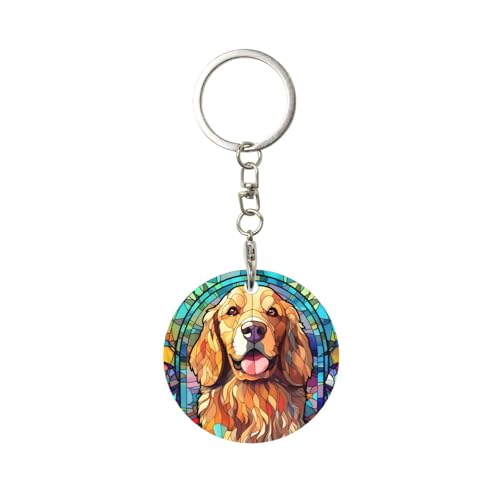Key Takeaways
- Health Monitoring is Crucial: Regular check-ups and vigilance help identify common issues like hip dysplasia, elbow dysplasia, cancer, and skin conditions in Golden Retrievers, particularly in multi-pet households.
- Benefits of Multi-Pet Living: An environment with multiple pets encourages socialization, emotional support, and reduces anxiety, ultimately leading to a happier, healthier Golden Retriever.
- Stress Management: Addressing stress and anxiety through consistent routines, safe spaces, and engaging activities is vital for keeping Golden Retrievers calm and healthy in bustling homes.
- Balanced Nutrition and Exercise: Providing high-quality nutrition and daily exercise is essential. A mix of mental and physical activities helps maintain a healthy weight and overall well-being.
- Positive Inter-Pet Interactions: Encouraging friendly relationships among pets fosters confidence and minimizes stress, significantly contributing to a harmonious and healthy multi-pet environment.
- Genetics Matter: Choosing a Golden Retriever from reputable rescues with responsible breeding practices can reduce the risk of hereditary health issues and improve the dog’s quality of life.
Living in a multi-pet home can be a joyful experience, especially with a lovable Golden Retriever by your side. These friendly companions bring so much happiness, but their health can sometimes be affected by the dynamics of sharing a space with other pets. It’s essential to understand how to keep our furry friends healthy and thriving in a bustling household.
I’ve learned that managing the health of a Golden Retriever in a multi-pet environment requires a bit of extra attention. From monitoring their diet to ensuring they get enough exercise and socialization, there are unique challenges and rewards. Let’s dive into some key tips and insights that can help you maintain your Golden’s well-being while fostering harmony among all your pets.
Understanding Golden Retriever Health
Golden Retrievers possess unique health needs, especially in multi-pet homes. It’s crucial to monitor their overall well-being through consistent care, including a balanced diet, regular exercise, and social interaction.
Common Health Issues
Golden Retrievers commonly face specific health challenges that owners should be aware of. For instance:
- Hip Dysplasia: This genetic condition leads to malformation of the hip joint, causing pain and arthritis.
- Elbow Dysplasia: Similar to hip dysplasia, elbow dysplasia affects joint formation and can hinder mobility.
- Cancer: Golden Retrievers have a higher incidence of certain cancers, such as lymphoma and hemangiosarcoma.
- Skin Conditions: Conditions like allergies and dermatitis can arise, particularly in environments with various pet types.
- Gastrointestinal Issues: Bloating and dietary intolerances can affect digestion, especially with multiple feeding patterns in the household.
Regular veterinary check-ups help catch these issues early, allowing for prompt treatment.
Lifespan and Genetics
Golden Retrievers typically live around 10 to 12 years, largely influenced by genetics and lifestyle. When adopting, it’s essential to consider the lineage of the dog. Health screenings for the parents can reveal potential hereditary issues, improving the chances of a healthier puppy.
As an owner of a dog rescue, I understand the impact of genetics on a dog’s health. Adopting from reputable rescues that prioritize responsible breeding ensures healthier dogs. Providing them with a nurturing environment and attentive care promotes longevity, contributing positively to their overall quality of life.
Maintaining healthy habits, coupled with regular veterinary care, fosters a happy, active Golden Retriever in a joyful multi-pet home.
Benefits of Multi-Pet Homes
Living in a multi-pet home offers various benefits, especially for Golden Retrievers. It creates a lively environment that can enhance their overall health and well-being.
Socialization Advantages
Socialization becomes a significant advantage in multi-pet homes. Golden Retrievers thrive on interaction, and having other pets around fosters their social skills. Regular playtime with other dogs encourages positive behavior, reduces anxiety, and helps them develop good social habits. They learn to communicate effectively, understand boundaries, and engage in healthy competition. Multi-pet interactions also expose them to different temperaments, teaching valuable lessons in empathy and tolerance.
Emotional Support for Golden Retrievers
Emotional support is another crucial benefit. Golden Retrievers, known for their affectionate nature, find comfort in the company of other pets. Having companions can ease their feelings of loneliness, particularly during stressful times, like thunderstorms or fireworks. Interactions with fellow pets provide mental stimulation and help them cope better with changes in their environment. This emotional bond contributes to a happier and more stable demeanor, ultimately promoting better health and longevity.
Potential Health Challenges
Living with multiple pets creates a vibrant household, but it also presents specific health challenges, especially for Golden Retrievers. Being aware of these potential issues helps ensure a balanced and healthy environment for all pets.
Stress and Anxiety Factors
Stress and anxiety often arise in multi-pet homes, and Golden Retrievers are particularly sensitive to these emotions. Changes in routine, overcrowding, or competition for resources can lead to anxiety, which negatively affects their health. Signs of stress may include excessive barking, destructive behavior, and avoidance. Regularly providing a safe space for each pet to retreat can mitigate anxiety. Engaging in consistent training and offering mental stimulation through puzzle toys can greatly reduce stress levels.
Inter-Pet Interactions
Inter-pet interactions play a crucial role in a Golden Retriever’s well-being. Healthy relationships among pets foster confidence and decrease anxiety, but negative interactions can lead to health complications. Aggressive behavior or dominance struggles can result in injuries or ongoing stress. Monitoring playtime and ensuring that all pets share resources fairly is vital. Promoting positive reinforcement during interactions helps cultivate friendly bonds, making a more harmonious household for everyone involved.

« Golden Retriever Fall Allergy Management: 9 Essential Strategies to Keep Your Pup Happy and Healthy
Golden Retriever Health Websites to Follow for Happy, Healthy Dogs: Top Resources Revealed »
By addressing these potential health challenges thoughtfully, I keep my Golden Retrievers thriving in our happy, multi-pet environment.
Best Practices for Maintaining Health
Maintaining the health of Golden Retrievers in a multi-pet home involves dedicated practices. It’s essential to focus on regular veterinary care, balanced nutrition, and consistent exercise routines. These steps ensure that all pets, including Golden Retrievers, thrive together in a harmonious environment.
Regular Veterinary Check-ups
Regular veterinary check-ups play a crucial role in the health maintenance of Golden Retrievers. I recommend scheduling annual exams or biannual visits for senior dogs. These check-ups allow for early detection of common health issues like hip and elbow dysplasia, skin conditions, and gastrointestinal problems. Keeping vaccinations up to date and discussing preventative treatments for parasites is essential. Always communicate any behavioral changes or health concerns to your vet, as they can provide tailored advice for your Golden and other pets.
Balanced Nutrition and Exercise
Balanced nutrition and exercise significantly contribute to the health of Golden Retrievers. I prioritize high-quality dog food that meets their specific needs, ensuring it supports their energy levels and overall well-being. I provide a mix of proteins, carbohydrates, and healthy fats appropriate for their age and activity level. Portion control is vital to avoid obesity, a common issue in the breed.
Daily exercise is non-negotiable. I take my dogs on walks for at least 30 to 60 minutes, allowing them to socialize with other pets. Interactive playtime and mental stimulation are essential to keep them happy and engaged. Activities like fetch, agility training, or puzzle toys prevent boredom and enhance physical health. Remember, a tired dog is a happy dog, so it’s key to include a variety of activities to cater to their natural instincts.
Conclusion
Caring for a Golden Retriever in a multi-pet home can be a rewarding experience. I’ve seen firsthand how the right environment can enhance their well-being and happiness. By focusing on their health needs and fostering positive relationships with other pets, I’ve found that my Golden thrives both physically and emotionally.
It’s all about balance and attentiveness. With regular vet visits proper nutrition and plenty of exercise I’m confident that I’m giving my furry friend the best life possible. Embracing the joys and challenges of multi-pet living makes every day an adventure worth sharing with my Golden Retriever and all our other beloved companions.

















